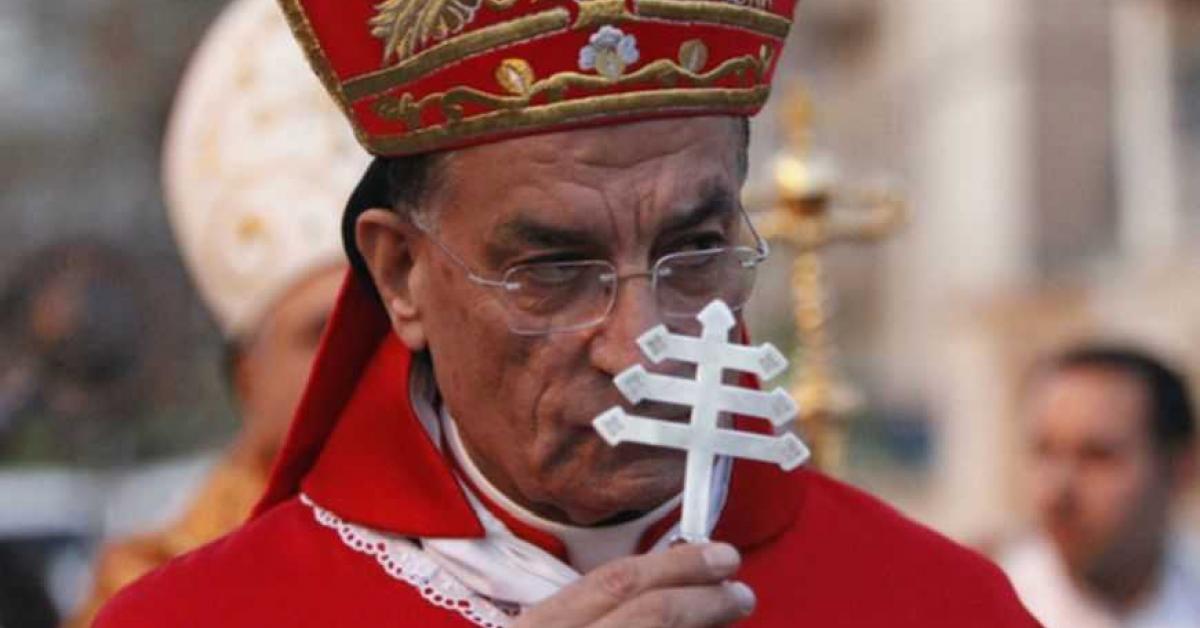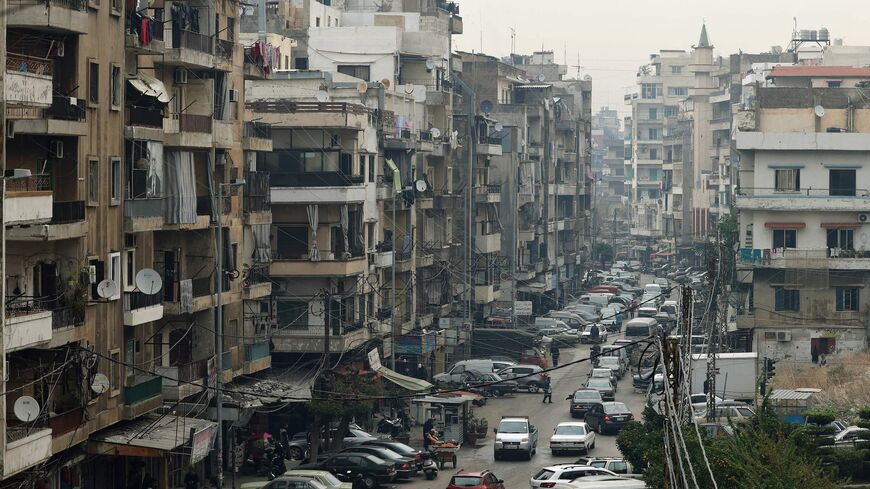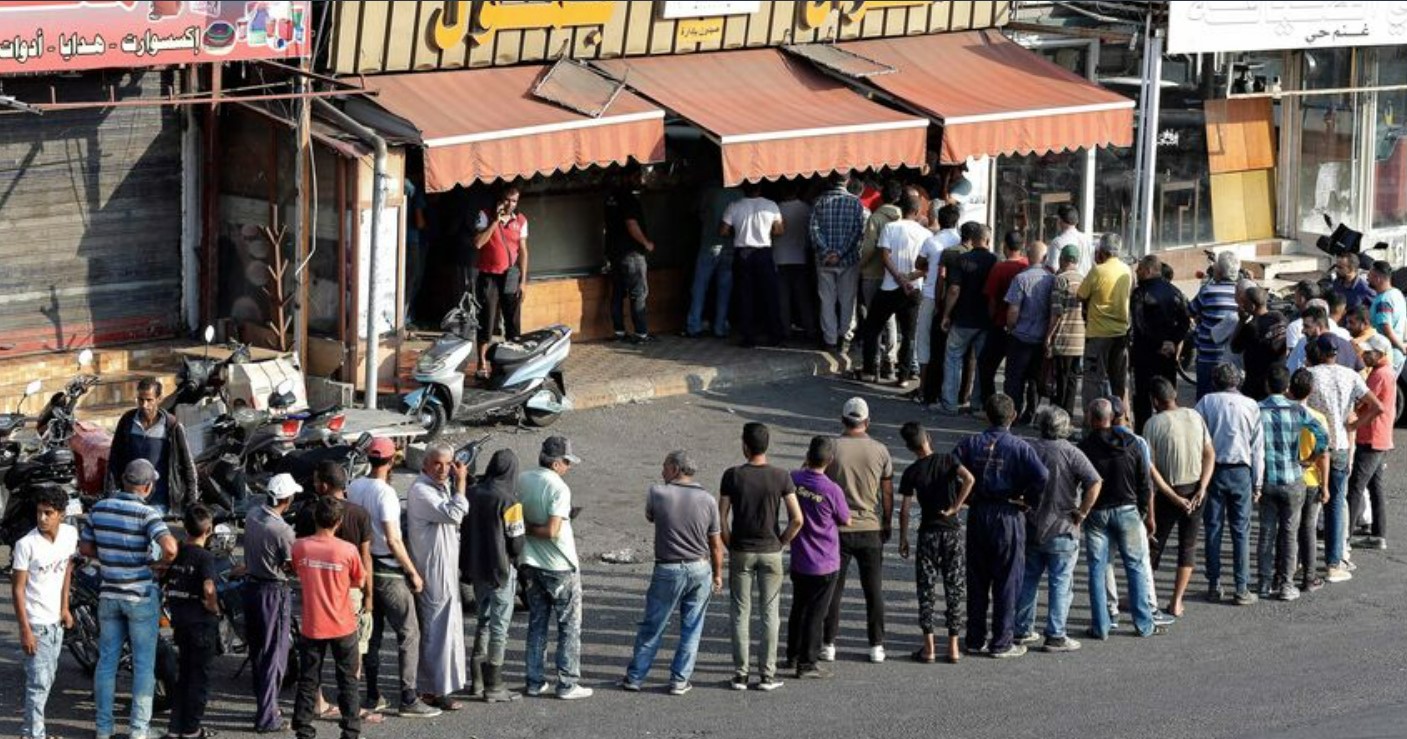
NNA - Maronite Patriarch, Cardinal Beshara Boutros Al-Rahi, strongly criticized the nature of the presidential election sessions, describing the scene in Parliament as a "continuing farce." "The farce of the election sessions continues, officials must take a stand of conscience before the oppressed people and the condition of the state that is disintegrating," Patriarch Al-Rahi said. During his homily on Sunday, the Patriarch held ministers and MPs responsible for the stigma attached to Lebanon by making it lose its right to vote in the United Nations. "The dollar has exceeded fifty thousand, and the gasoline is hitting one million soon, so how will the people live?" he questioned.
By Simon Caldwell -- catholicherald.co.uk -- -- The leader of the Maronite Church has appealed to the international community to begin the repatriation of 1.5 million Syrian refugees from Lebanon because they threaten to destabilise the country. Cardinal Bechara Boutros al-Raï, Patriarch of Antioch and All the East, said the refugees, who are overwhelmingly Sunni Muslim, represented a “real demographic, political and security threat”. “The presence of more than a million and a half Syrian refugees who emigrated and were displaced since 2011 have multiplied and turned into a heavy burden economically and financially on a country already in deep crisis,” he said. “We ask that they be repatriated to their country Syria to protect and rebuild it,” he said during a visit to London. “We demand also that the international donor agencies offer them assistance inside their own country, not in Lebanon.”

by Cathrin Schaer - dw -- Food prices doubled, salaries halved, banks restricting withdrawals: Egyptians now have the same problems as the Lebanese. But if things get worse here, the fallout will be far more damaging. As the value of the Egyptian pound plummets, grocery shopping has changed for many middle-class Egyptians, becoming a strict exercise in currency control. "Instead of buying three kilograms of rice when we go shopping, we just buy a kilo or a half kilo," explained Ahmed Hassan, 40, an accountant and father-of-three from the Shoubra neighborhood in Cairo. "We're trying to reduce our expenditures. Unfortunately we can't limit everything because our children need certain things," he told DW.
Egypt's currency has devalued by around one-third since late October and inflation currently stands at over 20%. Some economists suspect it's even worse than that. They put the unofficial rate — which includes Egypt's huge informal economy — as high as 101%. Food prices doubled, salaries halved and banks that restrict how much cash you can take out of your accounts: The financial freefall that many ordinary people in Egypt are experiencing today sounds very similar to the catastrophic economic crisis citizens in nearby Lebanon have been dealing with since 2019.
'Remarkable similarities' between Lebanon and Egypt
In Lebanon, desperate locals have gone so far as to rob their own banks simply to withdraw their savings, cities have been plunged into darkness as fuel for power stations has run out and the country's middle class is being pushed into debt. Things haven't gone that far in Egypt yet. But as the bad economic news keeps coming, some are asking: Could Egypt soon become "the new Lebanon?" "There are remarkable similarities between Lebanon's now abjectly failed economy and Egypt's struggling one," Robert Springborg, an adjunct professor at Canada's Simon Fraser University, wrote in a 2022 report for the Washington-based non-profit organization Project on Middle East Democracy (POMED). "The consequences of the collapse of confidence in Lebanon have been devastating but they would pale into near insignificance if repeated on an Egyptian scale," he warned. Egypt's current economic problems are the result of a number of internal issues — including political unrest, corruption and government mismanagement — which have more recently combined with external crises, like the COVID-19 pandemic, the war in Ukraine and the threat of a global recession.
Economic mismanagement

By Sam Sweeney - The nationalreview.com -- I chuckled at the question but wasn’t surprised. I had just purchased about $1,500 worth of manufactured agricultural products directly from the factory for a small NGO I run in northeastern Syria. I was sitting in the factory’s office, which was bustling with potential customers and workers coming and going. In these situations, it isn’t the corruption that is surprising, it’s how normal it has become, with no hush-hush or backroom whispering. In a room full of strangers, the manager was asking me if I wanted him to doctor the receipts for the NGO so I could take a cut. No one batted an eye. Given that I founded the NGO and run it as a volunteer, my main thought was that if I did steal this money from the NGO, I would just be making more work for myself, because we would need to do more fundraising to replace the lost money, as we were already cutting it close on the budget needed to finish the project. For me, playing it straight was as much a practical move as a moral choice. But if I were an employee of a large international NGO whose management rarely traveled into Syria, it would have been a great opportunity to pocket a few hundred dollars.
I mentioned this anecdote to a Western employee of a large NGO working in Syria. This person said it validated what they already suspected, that corruption among their local staff was the rule, not the exception. Millions of dollars are pouring into northeast Syria via dozens of international and local NGOs to fund displaced-person camps, infrastructure projects, education and health initiatives, and other needs — urgent or otherwise. Oversight is almost impossible, despite the many checks in place that are meant to prevent corruption or nepotism. The management of these NGOs comes from an array of mostly Western countries, and if they visit Syria, their movements are heavily restricted, and they are usually confined to a compound or villa, allowing for limited interaction with the broader society. Few speak Arabic (or Kurdish or Syriac or any of the other languages used in northeast Syria), and they have little access to information outside of what they are told by their local staff.

By Celine Alkhaldi -- cnn -- Lebanon vowed to restore its payments to the UN’s operating budget on Friday after losing its right to vote in the 193-member UN General Assembly, according to the country’s state-owned National News Agency (NNA). Lebanon is one of six countries to lose its right to vote for not meeting minimum contributions, along with Venezuela, South Sudan, Gabon, Dominica and Equatorial Guinea, UN Secretary General Antonio Guterres said in a letter on Thursday. In response to the suspension, Lebanon’s Foreign Ministry said on Friday that the payment process “will take place immediately,” NNA said. “The Ministry of Foreign Affairs and Emigrants would like to clarify that all the payment stages of the required amount have been completed,” the ministry said in a statement, according to NNA. “After the necessary contacts with each of the Lebanese Prime Minister and Minister of Finance, it has been confirmed that the final payment process will take place immediately in a manner that preserves Lebanon’s rights in the United Nations.”
Former Lebanese ambassador holds sit-in at Beirut bank amid new wave of heists Under Article 19 of the UN Charter, members with arrears that equal or exceed the amount of their contributions for the preceding two full years lose their voting rights. The General Assembly also has the authority to decide “if failure to pay is due to conditions beyond the control of the Member,” in which case the country will not lose its voting rights. The minimum payments needed to restore voting rights for Lebanon is $1,835,303, the secretary general’s letter said. For more than three years, Lebanon has seen “the most devastating, multi-pronged crisis in its modern history,” as described by the World Bank. In a report on Lebanon, the International Monetary Fund (IMF) described the situation in the country as the “deepest economic crisis since the end of the civil war.”
Khazen History


Historical Feature:
Churches and Monasteries of the Khazen family

St. Anthony of Padua Church in Ballouneh
Mar Abda Church in Bakaatit Kanaan
Saint Michael Church in Bkaatouta
Saint Therese Church in Qolayaat
Saint Simeon Stylites (مار سمعان العامودي) Church In Ajaltoun
Virgin Mary Church (سيدة المعونات) in Sheilé
Assumption of Mary Church in Ballouneh
1 - The sword of the Maronite Prince
2 - LES KHAZEN CONSULS DE FRANCE
3 - LES MARONITES & LES KHAZEN
4 - LES MAAN & LES KHAZEN
5 - ORIGINE DE LA FAMILLE
Population Movements to Keserwan - The Khazens and The Maans
ما جاء عن الثورة في المقاطعة الكسروانية
ثورة أهالي كسروان على المشايخ الخوازنة وأسبابها
Origins of the "Prince of Maronite" Title
Growing diversity: the Khazin sheiks and the clergy in the first decades of the 18th century
Historical Members:
Barbar Beik El Khazen [English]
Patriach Toubia Kaiss El Khazen(Biography & Life Part1 Part2) (Arabic)
Patriach Youssef Dargham El Khazen (Cont'd)
Cheikh Bishara Jafal El Khazen
Patriarch Youssef Raji El Khazen
The Martyrs Cheikh Philippe & Cheikh Farid El Khazen
Cheikh Nawfal El Khazen (Consul De France)
Cheikh Hossun El Khazen (Consul De France)
Cheikh Abou-Nawfal El Khazen (Consul De France)
Cheikh Francis Abee Nader & his son Yousef
Cheikh Abou-Kanso El Khazen (Consul De France)
Cheikh Abou Nader El Khazen
Cheikh Chafic El Khazen
Cheikh Keserwan El Khazen
Cheikh Serhal El Khazen [English]
Cheikh Rafiq El Khazen [English]
Cheikh Hanna El Khazen
Cheikha Arzi El Khazen
Marie El Khazen